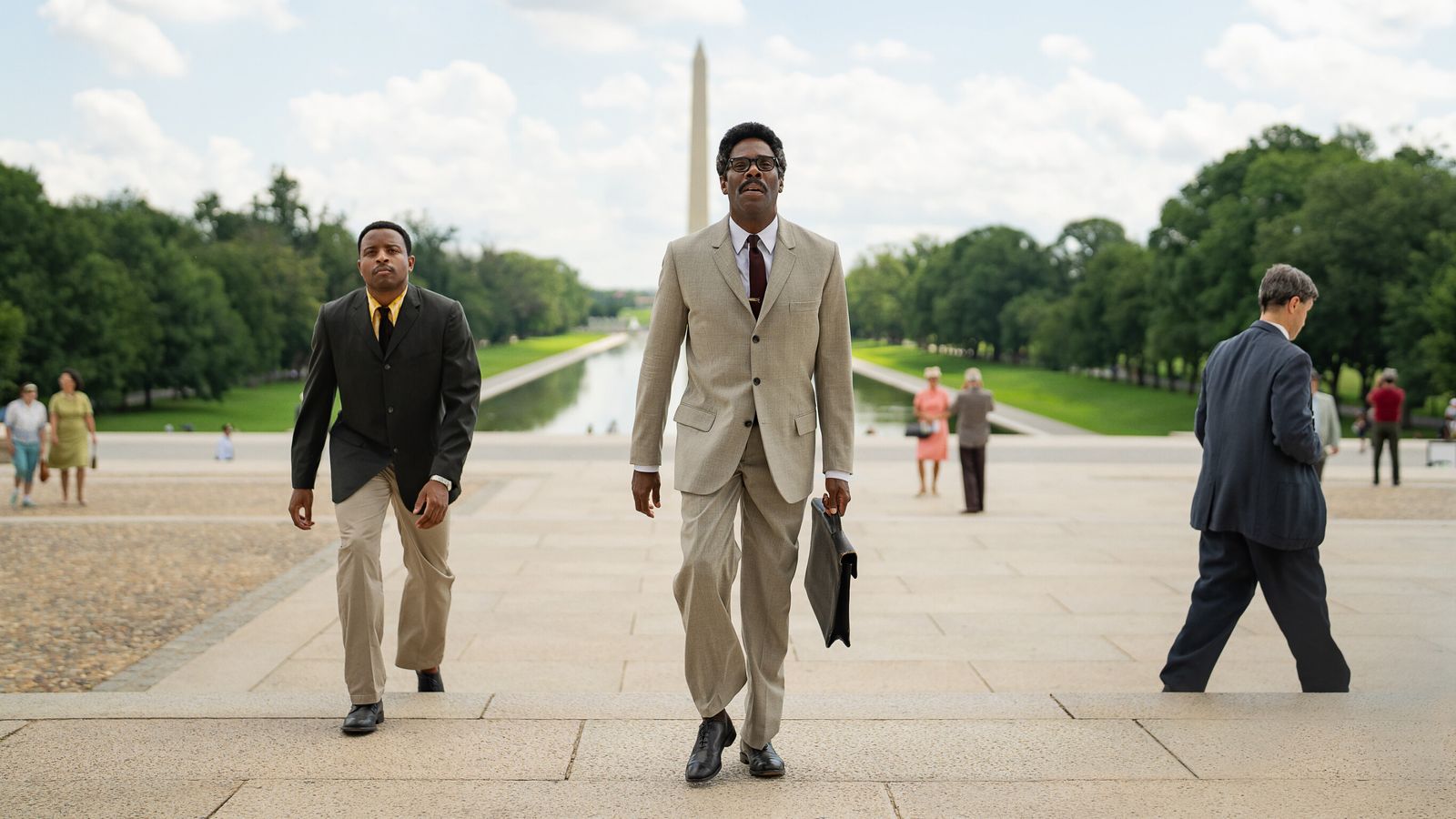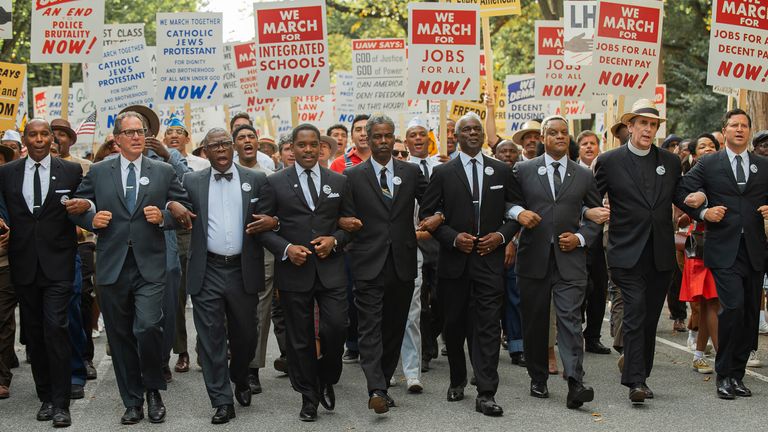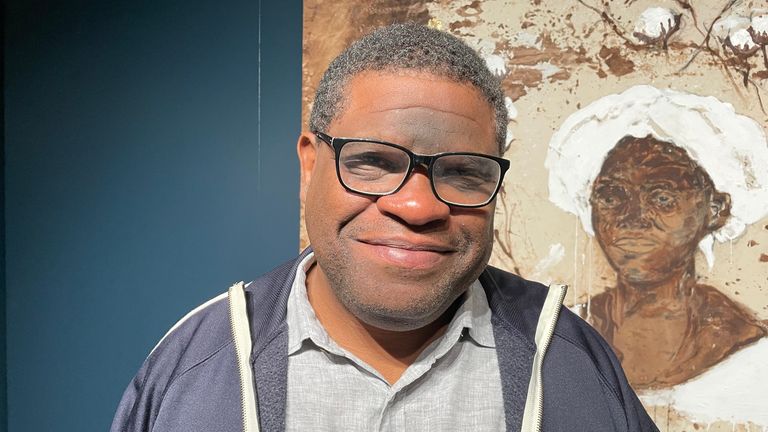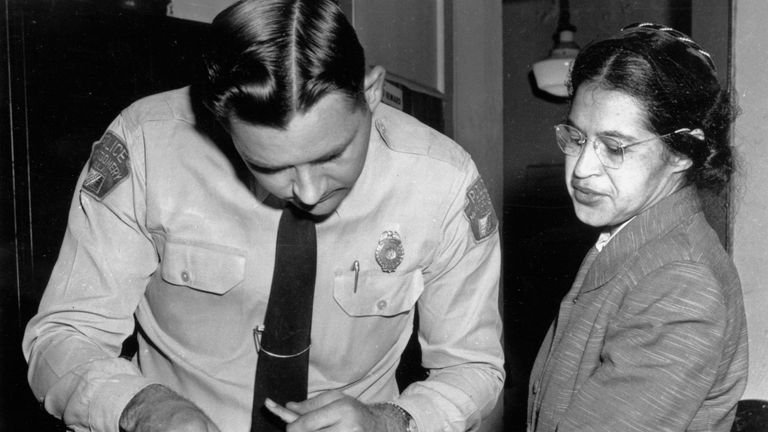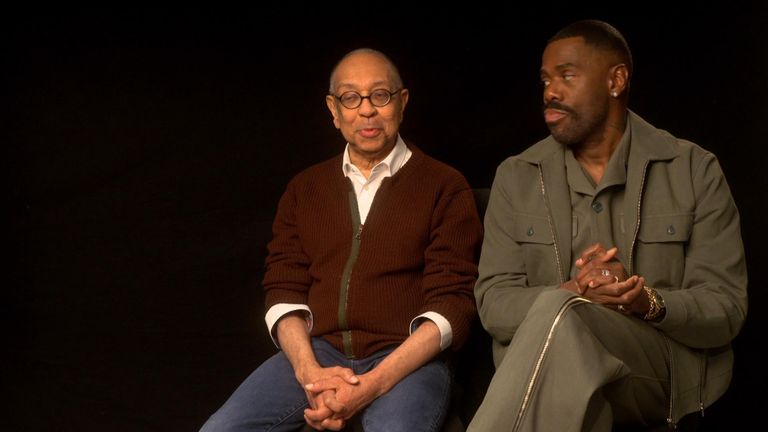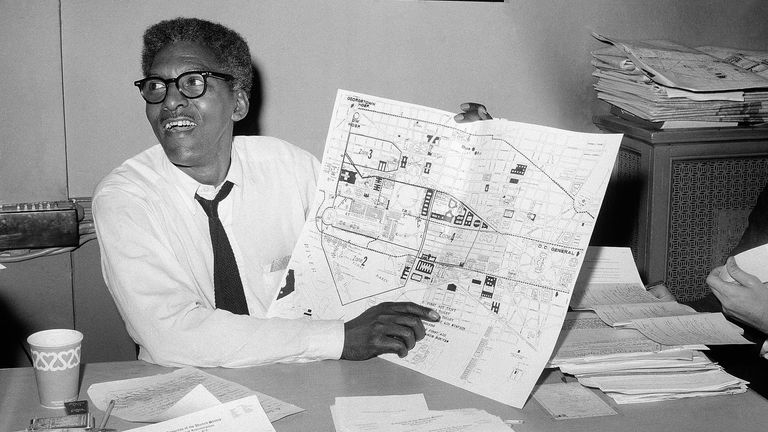
A new Barack and Michelle Obama-produced biopic about Bayard Rustin, the civil rights activist who mentored Martin Luther King Jr, will explore how his sexuality has affected his legacy.
Rustin, who died aged 75 in 1987, was one of the key organisers of the 1963 March on Washington – where King Jr made his “I have a dream” speech to 250,000 demonstrators.
But as a gay man with affiliations to the Communist Party, his place in history has often been erased in the decades since.
From the 1940s until the end of the 1960s, Rustin was beaten, arrested and ostracised for his political convictions and sexuality.
“It completely played against him and also a lot of women in the movement as well,” said Euphoria’s Colman Domingo, who is playing Rustin in the Netflix biopic.
“I understand how black folks, at times, we can be a bit conservative. But I think it was all trying to come together to actually do what we believed was right,” he said.
“Yet you have people’s minds, bodies and souls who live outside of that, who are sort of outliers that get denied access in many ways. And [Rustin] was just very much a man of his own creation.”
Jendella Benson, author and head of editorial at Black Ballad – a media outlet and community for black British women – said Rustin was a victim of the respectability politics of the time.
In the US in the 1960s, homosexuality was classified as a psychiatric disorder and you could face being fired from work for being gay.
Click to subscribe to Backstage wherever you get your podcasts
“There were all these ideas about respectability, about the right kind of black person to lead us and who is the infallible black person that white people will have to listen to, that white people will have to respect who has done all the right things. And we don’t leave room for complication,” Ms Benson said.
“I think black communities often suffer from this idea of collective responsibility, which can be good, but also can be quite restrictive in terms of if one person messes up, it’s somehow a brush to tar the whole community with.
“And rather than interrogating that narrative, sometimes we play into it.”
Rustin isn’t the first instance in which an activist from the civil rights movement has been sidelined in favour of someone who better fits rigid societal expectations.
Journalist and author Gary Younge documented the story of 15-year-old Claudette Colvin in his book Dispatches From The Diaspora: Nelson Mandela To Black Lives Matter.
She was removed from a bus in Montgomery, Alabama in the 1950s.
“The civil rights movement [was] going to go with her [as the face of the protest] but she was dark-skinned [and] from the wrong side of town. And then she got pregnant and they dropped her like a hot potato,” Mr Younge told Sky News.
Shortly after, Rosa Parks was kicked off a bus in the same city and became synonymous with the civil rights movement.
“I’m proudest of [interviewing] Claudette Colvin [in the book] because I found her and I felt at the time she wasn’t being celebrated in the way that she is now,” Mr Younge said.
Just three years before the March on Washington, the US had its first televised presidential debate. For the biopic’s film director George C Wolfe this made the civil rights movement acutely aware of the impact respectability had on perception.
“President Kennedy had just won a presidential election because he was handsome and charismatic versus Richard Nixon, who sweated throughout the entire thing.
“So image was very important for black people at the time because they were aware that they were entering the mainstream,” Wolfe told Sky News.
Rustin is streaming on Netflix.

